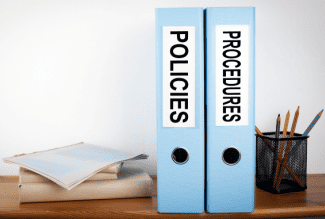Stay Ahead of the Game: Avoiding Multifamily Hurdles Before They Occur
While challenges in the multifamily industry are inevitable, owners and operators can implement strategies to stay ahead of the game and overcome their effects.

One of the most significant challenges can be a weather event or another type of disaster, and failure to have a strategy in place can create chaos and confusion. This can significantly and severely impact the outcome of any emergency. Another hurdle is the changing regulatory environment.
Laws and regulations regarding resident rights, fair-housing practices and building codes can vary from state to state and are subject to change on the fly. Staying compliant with these regulations can be a daunting task.
The potential for resident disputes and conflicts, whether it’s complaints, maintenance issues or disagreements over lease terms, is always present. Managing these relationships requires skill, diplomacy and timeliness to maintain a community’s reputation and ensure resident satisfaction. Financial considerations also pose a constant challenge in the industry. Even modest missteps can quickly turn costly and further damage reputation. It’s likely not a matter of “if” properties will face these risks, but rather “when.”
The Consequences of Missteps
When it comes to disasters, the lack of a solid set of policies and procedures can result in injury, fatalities and greater property damage and related costs. A comprehensive disaster strategy reduces risk and protects lives.
Failure to comply with regulations can result in fines, legal action and potentially more turmoil. Unresolved resident disputes can generate negative reviews, which significantly affects the reputation of a community and harms an onsite team’s ability to generate quality leads. Financially, missteps can lead to legal fees, court settlements and increased insurance premiums, all of which quickly affect net operating income.
It is vital to recognize that the consequences of these missteps extend far beyond the immediate financial impact and can erode the long-term success of a portfolio. Fortunately, owners and operators can take proactive measures to reduce costly risks.
Proactive Measures for Potential Hurdles
The worst mistake any organization can make is to not have any defined emergency plans in place. This is a recipe for disaster in any situation. Taking proactive measures to safeguard properties and protect residents is essential. This is accomplished by implementing a comprehensive risk-management strategy that can minimize the likelihood of encountering hurdles and mitigate the impact when they do arise:
-
- Build a strong foundation of policies: One of the first steps is establishing a solid foundation of policies. These should outline clear guidelines for all activities in the community, including resident communication and team protocols. Well-documented policies set expectations for both residents and teams, reduce the potential for misunderstandings and ensure consistency throughout operations.
- Ongoing training for teams and residents: Providing ongoing, regular training sessions helps make certain that everyone is aware of the latest regulations, best practices and procedures for addressing common challenges. By investing in professional development, teams are empowered to navigate hurdles and make informed decisions effectively. Property teams also need to continually train residents on disaster preparedness and the community’s plan for any incidents.
Paying Too Much For Insurance?
Get a FREE quote to insure your rental properties for less.
- Easy access to policies and procedures: The potential for risk increases if teams find it difficult to locate the required information for any incident or issue they encounter. Policies and procedures should be available electronically and readily accessible from any device. This method also pushes updates company-wide, so associates don’t miss important changes.
- Establish a chain of communication: When it comes to disasters, property managers need to be able to establish contact quickly and know who to contact. Creating a chain of communication saves valuable time and makes disaster management more effective. Make sure the established system is clear and all team members know their roles and responsibilities.
- Support for compliance and mitigation: It is crucial to have support for compliance and risk mitigation efforts. Regular audits to assess adherence to policies, maintaining open lines of communication to address concerns promptly and partnering with legal and insurance professionals who specialize in multifamily, are helpful steps to boost compliance and assessment. It is also crucial to monitor on-property activity to identify and address potential issues before they escalate.
Strategies for Staying Ahead
While multifamily challenges in the industry are inevitable, owners and operators can implement strategies to stay ahead of the game and overcome their effects:
- Embrace technology: Using technology streamlines operations and enhances efficiency in managing policies, procedures and properties. Management software and services can automate many repetitive and high-risk tasks, which can mitigate errors and improve resident satisfaction. Digital communication tools facilitate effective outreach efforts, mitigating potential confusion.
- Foster a culture of open communication: Encouraging open communication between associates and management, as well as residents and teams, is essential for identifying and addressing potential issues early on. Establish channels for residents to voice their concerns, whether it’s through online portals or regular meetings. Do the same for employees company-wide. Fostering a culture of open communication creates a supportive environment that minimizes the likelihood of conflicts escalating into major hurdles.
- Stay informed and adapt: The regulatory landscape in the multifamily industry is constantly evolving. Stay informed about changes and adjust policies and procedures accordingly. Failure to comply with regulations can carry heavy financial penalties in some cases. After updates to policies, it’s important to follow up with teams to make sure they know and understand the changes.
- Employ third-party services: Creating and updating policies and procedures, as well as the related training, can be a monumental task, and mistakes are possible for those unfamiliar with the process. Consider the use of an organization experienced in knowing the changes, crafting the needed policies and keeping employees informed.
By building a strong foundation of policies, providing ongoing training and seeking continued support for compliance and risk mitigation, owners and operators can stay ahead of the game and guard against risks. Embracing technology, fostering open communication and staying informed about industry changes are additional strategies to ensure long-term success. Even the smallest misstep can have significant consequences, so it is essential to prioritize risk management and take the necessary steps to safeguard operations.
Source: Rental Housing Journal















 Accessibility
Accessibility